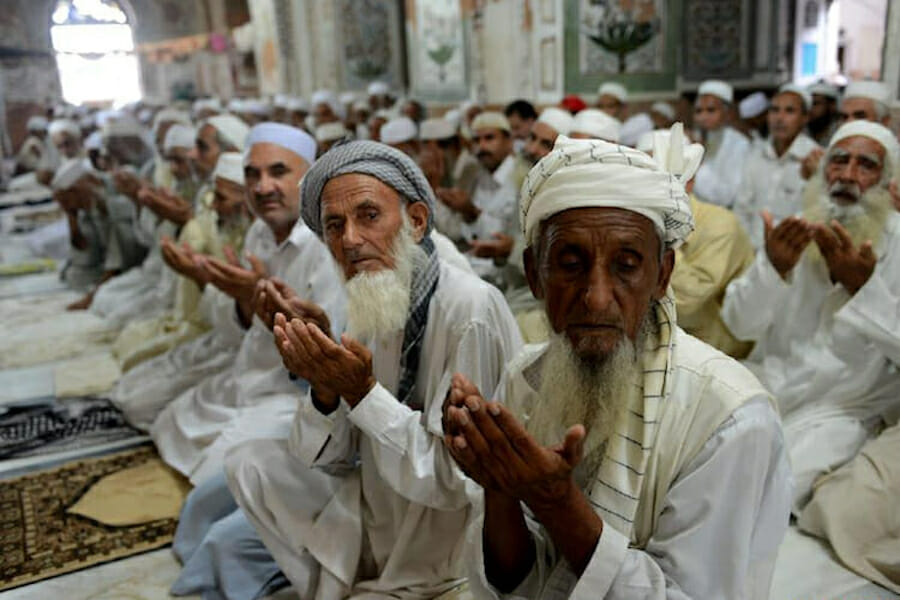
Culture
Islam’s Relationship with Liberalism
When members of Canada’s parliament once debated a motion known as M-103 the controversy it generated speaks to a grander challenge facing liberal societies today. The motion condemned racism and religious discrimination, emphasizing Islamophobia. It urged the government to take note of Petition e-411, which asked the House of Commons to recognize that violent extremists “do not represent the religion of Islam…[because they] do not reflect in any way [its] values or teachings.”
Permitting the petition’s first two points is straightforward, because polling data shows us that most Muslims worldwide, and American Muslims in particular, reject the use of violence against civilians. Everyday life in Canada confirms the same view. Recognizing the petition’s third claim, on the other hand, is quite another thing, because it raises the complex question of who qualifies as a “true” Muslim.
The petition represented a well-intentioned desire to protect innocent Muslims, but by denying any connection between extremism and Islam, it was guilty of overkill political correctness. The opposite end of the spectrum is even more problematic. Some of the motion’s critics preyed on unfounded fears that a formal denunciation of Islamophobia is the first step toward Sharia law in Canada. Both stances are wrong.
Islam and its politics
Proclamations of Sharia’s creeping influence in the West are exaggerated, likely because Islam’s not well understood. Islam is a religious tradition comprising the doctrine formed by the Qur’an, in conjunction with the Sunnah, which is said to document instructive moments, or hadith, from the Prophet Muhammad’s life.
Islamism is a school of thought regarding Islam’s political application, whose adherents believe that society should be structured according to Islamic law, also known as Sharia. Islamists are very rare in North America, and are the minority across the West, because most Muslims in liberal societies recognize the legitimacy of secular governance. Furthermore, most Islamists and Salafists reject violence as a means of establishing a caliphate and imposing Sharia. Only Salafi jihadists, like members of ISIS and al-Qaeda, pose a tangible threat to public safety.
The violence that many associate with Islam has much to do with its geography, as Graham Fuller, an expert on Islamic extremism, argues in his book A World Without Islam. He makes the case that had the religion of Islam never been born, the West may well have become embroiled in the Middle East nonetheless — and perhaps faced with Orthodox Christian fanatics — simply for geopolitical reasons.
The Arabian Peninsula has long been a focal point of geopolitical wrangling because of its proximity to strategic trade routes, and the discovery of its immense oil reserves in the 1930s made the region even more central to international affairs. In 1973, in protest of the West’s support of Israel during the Yom Kippur War, the Organization of Petroleum Exporting Countries (OPEC) raised the price of its oil dramatically, sending several western economies into inflationary shock. As the world’s leading oil exporter, Saudi Arabia has collected resource revenue hand-over-fist, and enjoyed geopolitical clout, ever since.
Religious sentiment influences political dynamics, but the opposite is also at least as true. Wahhabism is the most well-known type of Salafism because it’s the Saudi version. That’s no accident. During the 18th century, in a bid to unify Arabia’s warring tribes, Muhammad bin Saud allied with the theologian Muhammad bin Abd al-Wahhab, who preached the austere brand of Sunni Islam that now bears his name. The pact was a win for both parties: by making al-Wahhab’s vision of Islam an institution, the ruling house of Saud was able to consolidate political power by cementing its bona fide status among the society’s clerical elites.
The 1979 Shia Iranian revolution spurred a reaction by hardliner Sunni militants in Saudi Arabia, who occupied the Grand Mosque in Mecca for fifteen days that same year. In the aftermath of the crisis, and facing a resurgent ideological competitor in Iran, the Saudi monarchy sought to reassert its own religious piety. Using its oil wealth to fund religious schools known as madrasas, Saudi Arabia promoted Wahhabism throughout the Middle East.
It was effectively a handshake with the devil. Osama bin Laden, after all, was a Saudi construction empire heir whose Wahhabist outlook put him at odds with the state’s expedient approach to ruling. He viewed the Saudi regime as heretical for its willingness to host America’s military in the Holy Land during and after the first Gulf War. Bin Laden’s associates bombed the US embassies in Nairobi and Dar es Salaam on August 7, 1998 — the eighth anniversary of American boots landing on Saudi sand. The September 11 attacks were also largely motivated by American military presence in Saudi Arabia, which lasted until 2003. It’s little wonder that 15 of 19 of the 9/11 hijackers were Saudis.
***
No True Scotsman?
Graeme Wood’s 2015 article “What ISIS Really Wants” stirred debate by arguing that extremists claiming to act in the name of Islam do, in fact, represent some of Islam’s teachings. Fanatical propaganda regularly draws passages from the Qur’an and the hadith as purported justification for violence and abuse. It’s impossible to say that Islamic extremism has no relation to Islamic doctrine.
People like Sam Harris and Bill Maher, with varying degrees of sophistication, share Wood’s view. Among his opinions on Islam, Harris makes the case that, at this point in its ideological evolution, Islam’s fringes are more dangerous than those of other religions. To the extent that radical interpretations of Islam are manifest in groups like ISIS, his assertion seems reasonable on its face. At the same time, though perhaps a lesser menace at present relative to Islamic extremism, one would be remiss to underestimate the threat posed by other religions’ fanatics. Jewish fundamentalists, for example, tried to provoke a holy war in 1984, and Anders Behring Breivik’s atrocity in 2011 was carried out in at least a partial defence of what he called “cultural Christianity.” Even so, studies on terrorism complicate our understanding of the motives at play.
Caner K. Dagli’s rebuttal to Wood’s article counters by observing that if: “ISIS is faithfully following Islamic norms of war…a thoughtful reader [might] wonder what all the other Muslims are doing.”
He reasons that ISIS routinely cherry-picks isolated passages from the hadith — many of which are apocryphal — to support its agenda, and ignores “Islam’s vast and varied intellectual and legal tradition” that has arisen over centuries to interpret the hadith, which often “seem to say contrary things about the same questions.” Indeed, in their concern over the misuse of Islamic scripture, hundreds of Islamic scholars from around the world penned a detailed open letter admonishing the leader of ISIS, Abu Bakr al-Baghdadi.
The key lesson from this exchange is that although Islamic extremism undeniably reflects a radical and exclusivist interpretation of Islamic doctrine, and intellectual honesty demands that we acknowledge as much, that does not indict devout Muslims who reject violence and embrace liberal norms. On the contrary, as Harris demonstrates through his alliance and friendship with former Islamist Maajid Nawaz, liberal-minded Muslims are the most important players in the struggle against Islamic extremism.
Despite his work as a reformer, Nawaz was included on the Southern Poverty Law Center’s list of “Anti-Muslim Extremists,” selected on the basis of his alleged “pernicious brand of extremism and hate [that he espouses] against Muslim communities and the Islamic faith.” It is a biting accusation from a leading US organization that reports on the activities of domestic hate groups. Sam Harris thinks their criticism of Nawaz is misplaced, arguing that those who denounce destructive ideas should not be dismissed as mere bigots, for doing so opens political space in the discourse surrounding Islam that true xenophobes will occupy. For those who perceive immigrants as dangerous invaders, political correctness toward delicate issues like this only engenders conspiratorial thinking, fueling genuine bigotry.
Let common sense prevail
The common phrase that Islam is simply a ‘religion of peace’ does not square with the inconvenient passages found in its scripture. Still, to say that it is an inherently violent ideology ignores the fact that almost all Muslims are peaceful and compassionate people, and also neglects the numerous socio-political factors that contribute to violence. The best analysis, as Maajid Nawaz offers in the video with Sam Harris, is that the violence on display neither has “nothing” to do with Islam, nor “everything” to do with it, but rather has “something” to do with Islam. That “something,” he concludes, is “the connection between belief and action — the connection between one’s interpretation of scripture [and] what one believes they must do.”
Liberal democracies must walk a tightrope of protecting free speech while also condemning actions that can jeopardize someone’s safety, including extreme displays of hate speech. Drawing that line is difficult, and political correctness obscures the conversation. It is preposterous to suggest that motion M-103 somehow heralds theocracy in Canada. It is also unhelpful to endorse Petition e-411 in its entirety, as the motion did, because it detracts from the frank discussion that we must be unafraid to have regarding Islam’s relationship with liberal society. The two are compatible so long as neither demonizes the other.

